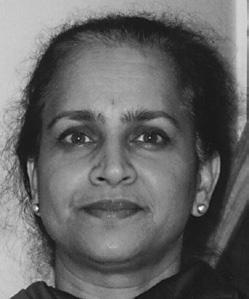
3 minute read
Perceptions of Pakistan
from 2010-02 Melbourne
by Indian Link
CHITRA SUDARSHAN reviews literary offerings by authors whose insights into India’s neighbour are varied and revealing

Idid my usual trek of book shops in India last December, trying to observe and gauge the sorts of titles and genres that are popular among the English reading public. Australian Greg Roberts’ Shantaram is still a favourite after all these years, and continues to adorn the windows and display shelves of bookshops; so is Freidman’s The World is Flat. The Indian middle class, this seems to suggest, hankers after validation from the west - in fact or fiction! Everywhere self-help books are popular: they entreat the readers to achieve the impossible and assure them that the world is theirs for the taking! For some inexplicable reason, Mein Kampf jumped out of bookshelves, book bazaars and book exhibitions a little too often for my liking; then there was the perennial favourite Paulo Coelho, and for the more advanced readers, Orhan Pamuk. Pamuk, the Turkist Nobel Literature laureate is the darling of the Indian literati: he is quoted by everyone from Pankaj Mishra to Githa Hariharan.
Wendy Doniger’s tome on Hinduism has evoked varied reactions from the Indian media and public – and despite its hefty price, is selling well.
During one of my meandering bookshop walks, I picked up an edited book by Daniel
Herwitz and Ashutosh Varshney titled Midnight’s Diaspora (Viking). Ashutosh Varshney is a talented academic whose articles on India I had enjoyed reading in serious journals - so I was attracted to the book. It is for the more seriously inclined: a collection of essays by Indians and Pakistanis settled abroad - and Western intellectuals - mainly on Pakistan’s national identity (although there are several on India as well), based on the works of Salman Rushdie and his evaluation of Pakistan as “a place....insufficiently imagined” and his attack of that country as a “failure of the dreaming mind”. Included are two interviews with Rushdie who defends The Satanic Verses, and for whom freedom of speech is intertwined with freedom to offend. Husain Haqqani’s article is by far the most engaging and he endorses Rushdie’s views that the survival of Pakistan requires a re-imagining of its identity. There are great essays by Shashi Tharoor (now an elected MP from Trivandrum and a Minister in the Congress Government) and others as well.

It came as no surprise, therefore, that in Ziauddin Sardar’s book Desperately Seeking Paradise: Journeys of a Sceptical Muslim, he devotes a whole chapter (13) to a diatribe of Rushdie’s Satanic Verses and the latter’s ‘irrational hatred of Pakistan’. Sardar is a well known Pakistani-British scholar and academic who writes extensively on Pakistan and Islam. This book draws on an old Muslim tradition in which a man sets out from home and friends, ostensibly to go to Mecca, but really to indulge his spiritual restlessness – as Ibn Batuta did several centuries ago! The book describes the author’s interaction with various Muslim religious groups in Britain and his travels in Muslim countries around the world.
Satanic Verses, he argues, was written about the Prophet’s life in an offensive way. Rushdie’s controversial book “plundered ...the inner sanctum of my identity and (I) felt ..every word was directed at me... personally”. The claim of the title, that he is a ‘Sceptical Muslim’, therefore, does not quite sit with the theme of the book. The author does, however, canvass the idea of plurality within Islam, and introduces the reader to a Muslim world that is lively and questioning and tolerant –in a humorous way. However, one does comes away with the feeling that Sardar’s is a sanitised and benign account, shorn of the malevolence that characterises many even marginally fundamentalist groups: his description of the Egyptian based Muslim Brotherhood, for instance, reads like only a slightly misogynist neighbourhood committee.
While still on the subject of Pakistan, two very different books recount the experience of growing up in Britain in Pakistani households. Ed Husain’s book The Islamist, describes his teenage years as a Hizb-ut-Tahrir jihadi operative in Britain, rubbing shoulders with well known terrorists, and his way out of it. This is an extraordinarily honest personal story, which examines the dislocation experienced by many second generation Muslim young men and their drift towards radical Muslim youth organisations like the Hizb. Husain also admits that sexual frustration is intertwined with the idea of terrorist glory. A quite different account of growing up a Muslim in Britain is Imran Ahmad’s book An Unimagined Life. Whereas Ed Husain came from a poor family, this is a story of a middle class boy who went to grammar school, University, and ends up as an auditor. The trajectory of his religious awakening quite different: coming from a liberal household, he discovers Islam only in the University, and is overwhelmed by the brotherhood of the global umma










